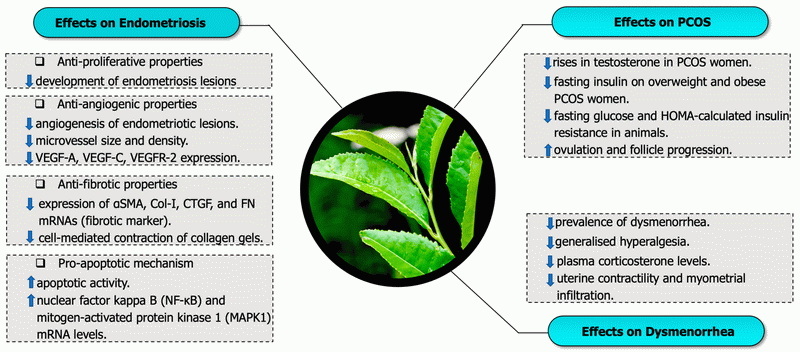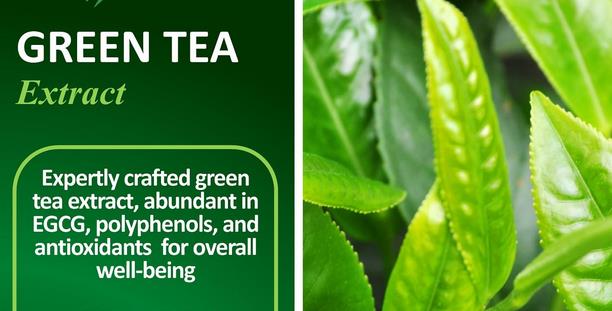Content Menu
● Understanding Green Tea Extract
● Potential Benefits of Green Tea Extract
● Common Side Effects of Green Tea Extract
>> 1. Caffeine-Related Side Effects
>> 2. Digestive Issues
>> 3. Headaches
>> 4. Iron Absorption Interference
● Serious Side Effects and Risks
>> 1. Liver Damage
>> 2. Interactions with Medications
● Factors Affecting Side Effects
● How to Minimize Side Effects
● Green Tea Extract vs. Green Tea
● Special Considerations
>> Pregnancy and Breastfeeding
>> Children and Adolescents
>> Elderly Individuals
● Monitoring for Side Effects
● Alternative Ways to Enjoy Green Tea Benefits
● Research and Future Perspectives
● Conclusion
● Frequently Asked Questions (FAQ)
>> 1. Is green tea extract safe for everyone?
>> 2. How much green tea extract is too much?
>> 3. Can green tea extract cause weight gain?
>> 4. How long does it take to see benefits from green tea extract?
>> 5. Can I take green tea extract if I'm sensitive to caffeine?
● Citations:
Green tea extract has gained popularity as a dietary supplement due to its potential health benefits. However, like any supplement, it can have side effects that consumers should be aware of. This article will explore the various side effects associated with green tea extract, its potential benefits, and how to use it safely.

Understanding Green Tea Extract
Green tea extract is a concentrated form of green tea, typically available in capsules or liquid form. It contains high levels of polyphenols, particularly catechins, which are known for their antioxidant properties. The most abundant and well-studied catechin in green tea is epigallocatechin-3-gallate (EGCG).
Potential Benefits of Green Tea Extract
Before delving into the side effects, it's important to understand why people choose to take green tea extract:
1. Antioxidant properties
2. Potential weight loss aid
3. Heart health support
4. Brain function enhancement
5. Possible cancer risk reduction
Common Side Effects of Green Tea Extract
While green tea extract is generally considered safe for most people when used in moderation, it can cause several side effects:
1. Caffeine-Related Side Effects
Green tea extract contains caffeine, which can lead to:
- Insomnia
- Nervousness
- Restlessness
- Increased heart rate
- Elevated blood pressure
2. Digestive Issues
Some people may experience:
- Nausea
- Stomach upset
- Constipation
- Diarrhea
3. Headaches
Caffeine in green tea extract can trigger headaches in some individuals, especially those sensitive to caffeine.
4. Iron Absorption Interference
Green tea extract may reduce the absorption of iron from food sources, potentially leading to iron deficiency anemia in susceptible individuals.
Serious Side Effects and Risks
While rare, some serious side effects have been associated with green tea extract consumption:
1. Liver Damage
In rare cases, high doses of green tea extract have been linked to liver problems. Symptoms may include:
- Yellowing of the skin or eyes (jaundice)
- Dark urine
- Abdominal pain
- Fatigue
2. Interactions with Medications
Green tea extract can interact with various medications, including:
- Blood thinners (e.g., warfarin)
- Beta-blockers
- Certain antibiotics
- Some antidepressants
Always consult with a healthcare provider before taking green tea extract if you're on any medications.

Factors Affecting Side Effects
Several factors can influence the likelihood and severity of side effects:
1. Dosage
2. Individual sensitivity
3. Pre-existing health conditions
4. Concurrent medication use
5. Quality of the extract
How to Minimize Side Effects
To reduce the risk of experiencing side effects:
1. Start with a low dose and gradually increase if needed
2. Take green tea extract with food
3. Choose a high-quality, reputable brand
4. Avoid taking it late in the day to prevent sleep disturbances
5. Stay hydrated
Green Tea Extract vs. Green Tea
It's worth noting that the side effects associated with green tea extract are often more pronounced than those from drinking green tea. This is due to the concentrated nature of the extract. Drinking green tea in moderation is generally considered safe for most people.
Special Considerations
Pregnancy and Breastfeeding
Pregnant and breastfeeding women should exercise caution when consuming green tea extract. The caffeine content and potential effects on folic acid absorption are concerns.
Children and Adolescents
There is limited research on the safety of green tea extract in children and adolescents. It's best to avoid giving green tea extract to this age group without medical supervision.
Elderly Individuals
Older adults may be more sensitive to the effects of caffeine and may need to use lower doses of green tea extract.
Monitoring for Side Effects
If you choose to take green tea extract, be vigilant for any unusual symptoms. Keep a journal of your supplement intake and any changes in your health. If you experience any concerning symptoms, discontinue use and consult a healthcare provider immediately.
Alternative Ways to Enjoy Green Tea Benefits
For those concerned about the potential side effects of green tea extract, there are alternative ways to enjoy the benefits of green tea:
1. Drink brewed green tea
2. Incorporate matcha powder into your diet
3. Try green tea-infused foods
Research and Future Perspectives
Ongoing research continues to explore the potential benefits and risks of green tea extract. As more studies are conducted, our understanding of its effects on human health will likely evolve.
Conclusion
Green tea extract offers potential health benefits, but it's not without risks. The side effects can range from mild discomfort to serious health issues in rare cases. It's crucial to use green tea extract responsibly, starting with low doses and being aware of any changes in your health. Always consult with a healthcare provider before adding any new supplement to your routine, especially if you have pre-existing health conditions or are taking medications.
While green tea extract can be a valuable addition to a healthy lifestyle for some people, it's not a magic solution. A balanced diet, regular exercise, and overall healthy habits remain the cornerstone of good health.
Frequently Asked Questions (FAQ)
1. Is green tea extract safe for everyone?
Green tea extract is generally safe for most adults when used in moderation. However, it may not be suitable for everyone, particularly those with certain health conditions or those taking specific medications. Always consult with a healthcare provider before starting any new supplement regimen.
2. How much green tea extract is too much?
The safe upper limit for green tea extract can vary depending on the individual and the specific product. Most studies have used doses ranging from 300-800 mg of green tea catechins per day. However, it's best to start with a lower dose and follow the manufacturer's recommendations or your healthcare provider's advice.
3. Can green tea extract cause weight gain?
No, green tea extract is not typically associated with weight gain. In fact, it's often used as a weight loss aid due to its potential to boost metabolism and increase fat burning. However, if you're consuming green tea extract in addition to your regular calorie intake without making other dietary changes, it won't lead to weight loss on its own.
4. How long does it take to see benefits from green tea extract?
The time it takes to see benefits from green tea extract can vary depending on the specific benefit you're looking for and individual factors. Some effects, like increased alertness, may be noticeable almost immediately due to the caffeine content. Other potential benefits, such as improvements in heart health or weight loss, may take weeks or months of consistent use to become apparent.
5. Can I take green tea extract if I'm sensitive to caffeine?
If you're sensitive to caffeine, you should be cautious with green tea extract. While it typically contains less caffeine than coffee, it can still cause side effects in caffeine-sensitive individuals. Look for decaffeinated green tea extract options, or consider alternatives like drinking small amounts of brewed green tea instead of taking concentrated extracts.
Citations:
[1] https://www.urmc.rochester.edu/encyclopedia/content?contenttypeid=19&contentid=GreenTeaExtract
[2] https://www.drugs.com/mtm/green-tea.html
[3] https://pmc.ncbi.nlm.nih.gov/articles/PMC7009618/
[4] https://www.alamy.com/stock-photo/green-tea-extract.html
[5] https://www.youtube.com/watch?v=eMuE16vLV_s
[6] https://www.youtube.com/watch?v=ZT7aLiVKxBE
[7] https://www.webmd.com/vitamins/ai/ingredientmono-960/green-tea
[8] https://www.webmd.com/drugs/2/drug-76714/green-tea-leaf-extract-oral/details
[9] https://www.freepik.com/free-photos-vectors/green-tea-extract
[10] https://www.medicalnewstoday.com/articles/269538





























